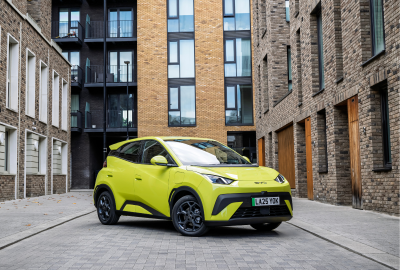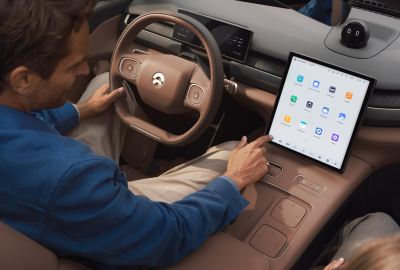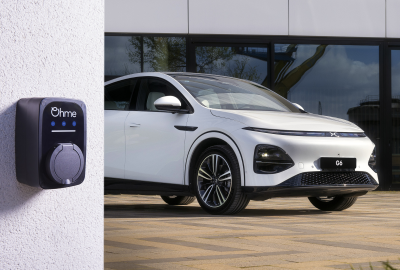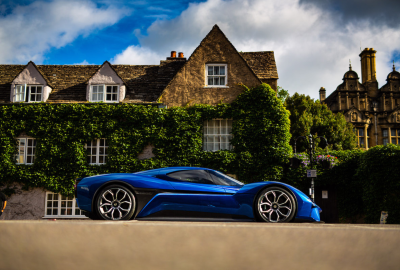The global auto industry is in danger, warns an expert who deals with the behind-the-scenes technology and innovation automakers are looking to bring to market up to a decade down the road.
John Wall, chief operating officer and head of product, engineering and services at QNX, told Newsweek, “The Chinese are moving very quickly.”
China’s auto industry is booming. Since 2009, China has been the world’s largest automotive manufacturing country and automotive market. Chinese car makers account for one-third of the world’s vehicle production.
“It’s super competitive in China. There are a lot of original equipment manufacturers that are competing with each other,” Wall said. And, they’re starting to compete with European and American automakers as well as other companies from Asia, including those from Japan and Korea.

A BYD Dolphin parked on the street.
BYD

Interior of a Nio vehicle.
Nio
“They’re competing with each other by putting out features very quickly. They’re competing by cutting costs, cutting prices of vehicles. There are going to be losers in China. There are going to be car companies that go out of business,” he continued.
QNX, a BlackBerry company, sees the future of automotive well before the public. They supply a variety of technology solutions to automakers and offer support for their systems, which are in 255 million vehicles that are on the road today.
Wall’s verdict about American carmakers is damning: “They’re not keeping pace.”
He said: “There’s many reasons why they’re not keeping pace. The Chinese don’t have a legacy of supporting back models and all that baggage that Ford and BMW and Mercedes and Volkswagen have. That’s the number one advantage. The second advantage is the Chinese are less focused on safety, so they’re going fast and they’re maybe cutting corners.”
“What I’m saying is the state-of-the-art processes for software development in a functional, safe context, is not being followed by the Chinese. The reality of it is, if you’re Mercedes or you’re Ford or you’re GM, you can’t have an accident… There’s so much legacy, there’s so much reputational baggage. Mercedes can’t have cars that drive into walls. It just can’t happen,” Wall said.
Car companies are bringing features to cars that a half-decade ago seemed nearly impossible, and they’re doing it at great expense. “I think what the speed of the Chinese has done is it has pointed out to the more traditional car makers, this focus on doing everything yourself is a mistake. There are things that bring value. There are areas you don’t bring value, and I think it’s becoming very recognized in the industry,” Wall said.
He continued: “A lot of people are spending a lot of time on platforms that provide no value to the customer, provide no differentiation for a car brand. It would behoove the auto industry to be able to start at a higher-level application development and not to be wasting time on things that are non-differentiating, but are very important. They have to work properly. If your base is weak, just like the foundation of a house, you’re going to have a problem.
Each misstep costs money, sometimes billions of dollars. “If you look at what’s happened with Volkswagen and Cariad, if you look at the money spent at Ford, at GM, the layoffs, the starts and stops to their strategy. That’s time and money, and it’s debatable whether those groups were really focused on the right things.”
QNX aims to provide a technology architecture to car companies that allows them to compete with the fast-moving Chinese brands. The technology combines software and hardware that would traditionally be sold in separate lots as a package.

XPeng G6 parked next to an Ohme home charger.
Xpeng

Xiaomi YU7 parked,
Xiaomi
“Our belief is, if you provide something that is non-differentiating, that allows the car makers to save money and to go faster, they’re going to be interested. It’s a value proposition. The reality of it is the Chinese would be interested. The Chinese are interested because anything that helps them go faster is better, and especially with their looking to export markets, they will have to have a much closer eye on functional safety and security,” Wall said.
